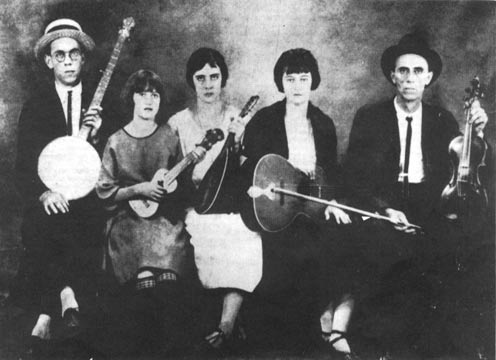

This record comes from a collection published by The Blue Ridge Institute documenting the folk music of the Virginia State. This one focalize on the kind of folk and dance music black virginians played in rural areas, before Blues became so popular that it eclipsed other kind of secular music. To listen to non-Blues material played by blacks during the 20th century, we must turn to field recordings as very few examples were recorded by phonograph companies. We must be thankful to people like the Lomaxes for example, who recorded a lot in the South for more than 30 years and brought back some outstanding performances. (See especially the collections "Black Appalachia" on Rounder or "Black banjo songsters" on Folkways)
On this record, you'll hear banjos, fiddles, guitars, accordeon, harmonica played by a bunch of players recorded mostly in the 1970's by Kip Lornell and some recorded in the 1930's by John and Alan Lomax. If you want to hear more performances by these players, you should go to The Digital Library of Appalachia, a goldmine of wonderful recordings of appalachian music.
Update: A reader told me that this record is avalaible in cd format or digitally through Itunes. I really appreciate the work of the record company who made avalaible this collection again (Global Village) so I strongly recommend that you buy a copy for yourself. I just offer you the booklet in pdf format...




